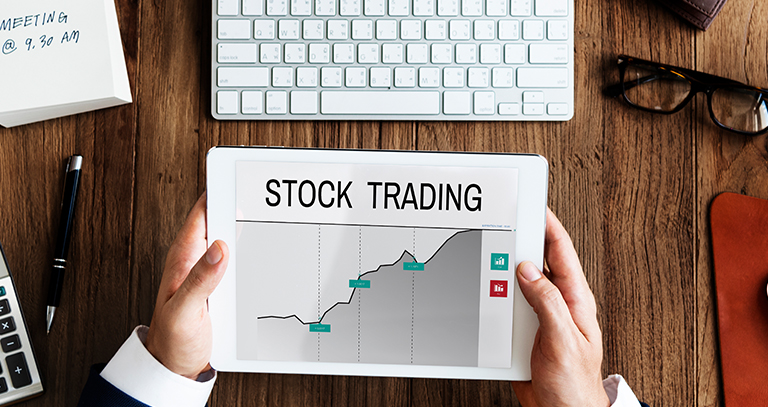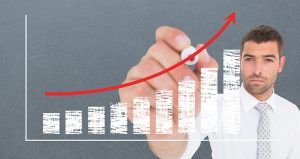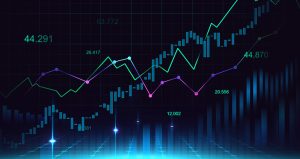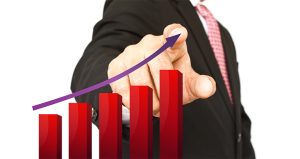Stock trading is all about art and brains!!!
A few days back I was planning to make an investment and I was thinking of the formalities I will have to do while getting the documentation done. Then one of my friends told me to get it done through investment apps such as Groww, Stockbizz, etc. Once I logged into Groww I found it quite easy. Within just a few clicks I could start investing. Before 7-8 years I couldn’t imagine the scenario would be this. So technology has grown the market of finance, investments, and stocks. We can now easily buy shares and analyze charts with just a few clicks. Let’s get to know more about how technology has evolved stock trading.
What Role Does Technology in Modern Stock Trading
Contents
Stock trading has come a long way from the days of frantic phone calls and crowded trading floors. In the modern era, technology has revolutionized every aspect of the stock trading process. Whether you’re a seasoned trader or a casual investor, understanding the role of technology in modern stock trading is crucial. In this blog, we’ll explore how technology has transformed stock trading and the key components that have reshaped the industry.
The Digital Transformation
Traditionally, stock trading involved brokers executing orders on behalf of clients through phone calls or in-person meetings. The process was slow, cumbersome, and often costly. However, with the advent of technology, the stock market has undergone a digital transformation that has made trading more accessible, efficient, and cost-effective.
Online Brokerage Platforms
The introduction of online brokerage platforms has been a game-changer. Investors can now place orders, research stocks, and manage their portfolios from the comfort of their own homes using a computer or smartphone. These platforms provide user-friendly interfaces, real-time market data, and a range of order types to cater to different trading strategies.
Mobile Trading Apps
Mobile trading apps have taken the convenience of stock trading to the next level. With a few taps on their smartphones, investors can buy and sell stocks on the go. These apps often provide additional features, such as customizable alerts and news feeds, to keep traders informed in real time.
High-Frequency Trading (HFT)
High-frequency trading has become a dominant force in modern stock markets. It involves the use of powerful computers and algorithms to execute large volumes of trades at lightning speed. HFT firms exploit tiny price differences and market inefficiencies, making markets more liquid but also introducing risks and concerns about fairness.
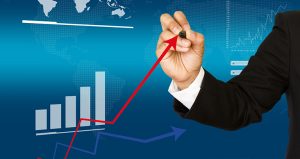
Data and Analytics
In the digital age, data and analytics are at the heart of stock trading. Access to real-time market data, financial news, and advanced analytics tools can significantly impact trading decisions.
Real-Time Market Data
Stock traders rely on real-time market data to make informed decisions. Streaming stock prices, order book data, and historical price charts are readily available on trading platforms. This data is essential for tracking market movements and executing timely trades.
Technical Analysis
Technical analysis, a method of forecasting price movements by studying historical market data and chart patterns, is heavily reliant on technology. Traders use specialized software to perform technical analysis, identify trends, and make predictions about future price movements.
Algorithmic Trading
Algorithmic trading, or algo trading, involves the use of computer algorithms to automate trading strategies. These algorithms can execute trades based on specific criteria, such as price movements or news events. Algorithmic trading is prevalent among institutional investors and hedge funds.
Risk Management and Security
As stock trading has become more digitized, risk management and security have become critical considerations.
Risk Management Tools
Technology provides traders with risk management tools to control and minimize potential losses. Features like stop-loss orders, which automatically sell a stock if it reaches a specified price, help traders limit their exposure to risk.
Cybersecurity
The increasing reliance on technology has made the stock market susceptible to cybersecurity threats. Hacking attempts, data breaches, and other cyberattacks can disrupt trading activities and compromise the security of investors’ data. As a result, stock exchanges and trading platforms invest heavily in cybersecurity measures to protect their systems and users.
Artificial Intelligence and Machine Learning
AI and ML have found their way into stock trading, enabling advanced data analysis and predictive modeling.
Sentiment Analysis
AI-driven sentiment analysis tools scan news articles, social media, and other sources to gauge market sentiment. Traders use this information to assess the potential impact of public sentiment on stock prices.
Predictive Analytics
Machine learning models can analyze historical data and make predictions about future stock price movements. These predictive models are used in algorithmic trading and quantitative strategies to optimize trading decisions.
Automation and Robo-Advisors
Automation has become a significant trend in modern stock trading. Robo-advisors are automated investment platforms that use algorithms to manage portfolios based on investors’ risk tolerance and financial goals.
Diversification
Robo-advisors offer diversified portfolios of stocks and other assets, allowing investors to spread risk across different securities without the need for active management.
Cost Efficiency
Robo-advisors typically charge lower fees compared to human financial advisors, making them an attractive option for cost-conscious investors.
Accessibility
Robo-advisors have made stock market participation more accessible to a broader range of people. Even those with minimal knowledge of trading can invest with confidence.
The Future of Stock Trading
The role of technology in modern stock trading is still evolving. Here are some potential future developments:
Blockchain Technology
Blockchain technology has the potential to revolutionize stock trading by providing transparent and secure settlement processes. It could reduce the need for intermediaries and expedite trade settlement.
Tokenization of Assets
The tokenization of assets, enabled by blockchain, could allow for the trading of a wide range of assets, including real estate and artwork, in a more liquid and accessible form.
Continued AI Advancements
Advancements in artificial intelligence could lead to more sophisticated trading algorithms, improved predictive models, and better risk management tools.
Regulatory Developments
Regulatory bodies are likely to play a more active role in regulating digital stock trading to ensure investor protection and market integrity.
Rundown
Technology has profoundly transformed the landscape of stock trading. The digitalization of the market has made it more accessible, efficient, and data-driven. Traders and investors now have a wide range of tools and platforms at their disposal to navigate the complexities of the stock market. As technology continues to evolve, it is certain that the role of technology in stock trading will remain a dynamic and ever-changing one, with the potential to reshape the industry further in the years to come.

